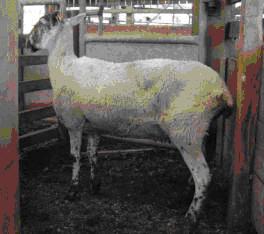New disease threats challenge European livestock

The UK is threatened by a large number of emerging livestock diseases and controlling them will take a co-ordinated European and international approach.
That was the view of Steve Dean, chief executive of the Vet Medicines Directorate, at a recent National Office of Animal Health conference.
“Preventing the spread of disease from other parts of the world protects farmers and consumers in Europe as well as in areas that are already infected,” he said.
“The rapid spread of bluetongue has demonstrated the problems emerging disease can cause. When they were not protected by vaccines some sheep owners in Europe were seeing mortality rates of up to 20% in their flocks in 2007.”
Mr Dean said new strains of bluetongue are a threat, including new mutating strains. But there are also a number of others including classical swine fever, bird flu, peste des petits ruminants, West Nile Virus and Rift Valley Fever.
The last of these is causing particular concern as it is can affect humans as well as livestock. It is spread by mosquitoes and was first discovered in Kenya. It has now spread to Egypt and the Middle East and the fear is that it could jump the Mediterranean and enter Europe.
The VMD is part of the European Technology Platform for Global Animal Health which seeks to speed up the development and introduction of vaccines and medicines to combat diseases. A particular focus is on ensuring that legislation does not hold up the introduction of vaccines, particularly when a disease threat is imminent.
Mr Dean cited the introduction of the BTV8 vaccine as a good example of this with the product developed, approved and administered within two years compared to at least seven years for most vaccines. He also said the industry needs to develop a communication strategy to demonstrate the importance of using vaccines and preventative medicines. This will be particularly important when a new generation of products that have been developed using genetic modification come on to the market in the next few years.
